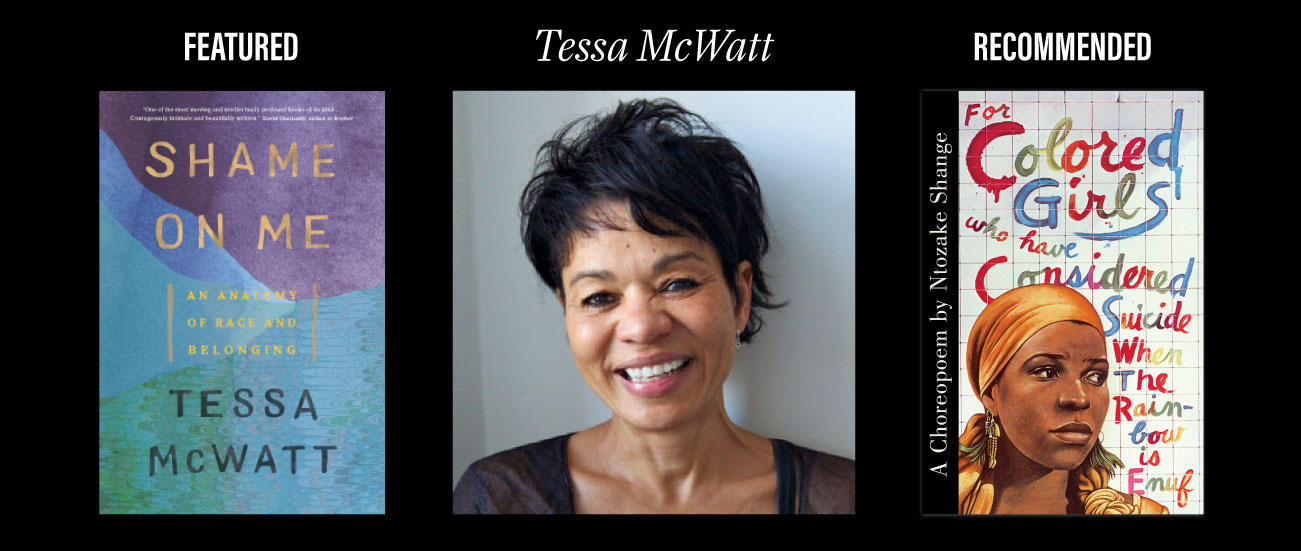
Tessa McWatt’s Featured Book
Shame on Me: An Anatomy of Race and Belonging
Tessa McWatt has been called Susie Wong, Pocahontas and “black bitch,” and has been judged not black enough by people who assume she straightens her hair. Now, through a close examination of her own body – nose, lips, hair, skin, eyes, ass, bones and blood – which holds up a mirror to the way culture reads all bodies, she asks why we persist in thinking in terms of race today when racism is killing us.
Her grandmother’s family fled southern China for British Guiana after her great uncle was shot in his own dentist’s chair during the First Sino-Japanese War. McWatt is made of this woman and more: those who arrived in British Guiana from India as indentured labour and those who were brought from Africa as cargo to work on the sugar plantations; colonists and those whom colonialism displaced. How do you tick a box on a census form or job application when your ancestry is Scottish, English, French, Portuguese, Indian, Amerindian, African and Chinese? How do you finally answer a question first posed to you in grade school: “What are you?” And where do you find a sense of belonging in a supposedly “post-racial” world where shadism, fear of blackness, identity politics and call-out culture vie with each other noisily, relentlessly and still lethally?
Shame on Me is a personal and powerful exploration of history and identity, colour and desire from a writer who, having been plagued with confusion about her race all her life, has at last found kinship and solidarity in story.
Buy the Book:
Owl’s Nest Books | Shelf Life Books
Tessa McWatt’s Recommended Book
A book that is still as vibrant as when it came out. It isn’t dated at all. There’s such a visceral response when you think about those women on the stage and their bodies and the intimacy of those women. That’s what really affected me about it.
For Colored Girls Who Have Considered Suicide / When the Rainbow Is Enuf by Ntozake Shange
This revolutionary, award-winning play by a lauded playwright and poet is a fearless portrayal of the experiences of women of color—“extraordinary and wonderful…that anyone can relate to” (The New York Times) and continues to move and resonate with readers today more than ever.
From its inception in California in 1974 to its highly acclaimed critical success at Joseph Papp’s Public Theater and on Broadway, the Obie Award-winning for colored girls who have considered suicide/when the rainbow is enuf has excited, inspired, and transformed audiences all over the country. Passionate and fearless, Shange’s words reveal what it is to be of color and female in the twentieth century. First published in 1975 when it was praised by The New Yorker for “encompassing…every feeling and experience a woman has ever had,” for colored girls who have considered suicide/when the rainbow is enuf will be read and performed for generations to come. Here is the complete text, with stage directions, of a groundbreaking dramatic prose poem written in vivid and powerful language that resonates with unusual beauty in its fierce message to the world.
Buy the Book:
